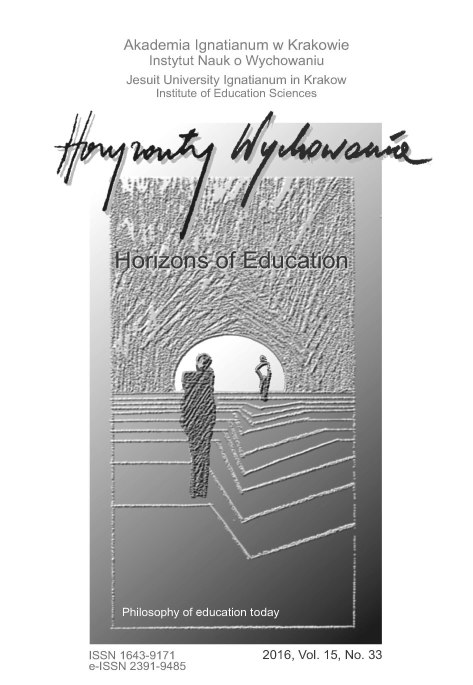When nothing seems to be questionable anymore.
Tracking the political implications of (religious) “Bildung”
When nothing seems to be questionable anymore.
Tracking the political implications of (religious) “Bildung”
Author(s): Andrea Lehner-HartmannSubject(s): Education, Theology and Religion, Philosophy of Religion, Philosophy of Science, Methodology and research technology, Social development, Sociology of Education
Published by: Uniwersytet Ignatianum w Krakowie
Keywords: “Bildung”; Injustice; Religious Education; Transformation;
Summary/Abstract: Research objective: The aim of the paper is to go into some questionable matters pertaining to “Bildung” and especially religious “Bildung”, and question their political implications. The research problem and methodology: Developments in society, especially o economical developments have a great influence to the area of “Bildung” as well as to the area of religious “Bildung”. Current concepts should be analysed. Reflections in philosophy of education and in religious education help to work out the failure of current developments. The process of argumentation: The paper starts with the question about how the concept of “Bildung” occurs in current discourses. Afterwards alternative models of “Bildung” and religious “Bildung” are discussed. It is then put into questions which intentions and implications prevailing concepts contain, who and what they disregard and how they collaborate towards the reproduction of social injustice and processes of exclusion. Research results: Religious “Bildung” as a part of general education is effected by societal developments and has to be aware of that. Presuppositions of Religious Education and Didactic of Religion has to scrutinize themselves if and in what way they do possibly promote injustice and which conclusions for future concepts could be drawn. Conclusions, innovation and recommendations: “Bildung”, especially religious “Bildung” are challenged by societal developments, e.g. migration, but should not just adapt to political or o economical desires. Rather they should not waive for their normative requirements so that they can question for social injustice in the societal developments as well as in their own concepts.
Journal: Horyzonty Wychowania
- Issue Year: 15/2016
- Issue No: 33
- Page Range: 23-38
- Page Count: 23
- Language: English

